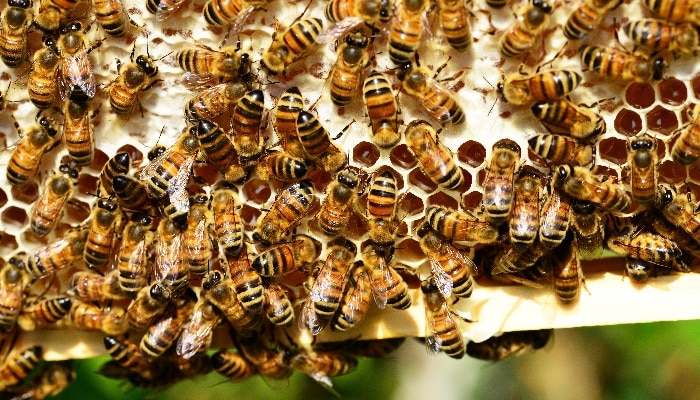On 30 May 2018, the Implementing Regulations (EU)
2018/783,
2018/784 and
2018/785 concerning the conditions for approval of Imidacloprid, Clothianidin and Thiamethoxam were published in the Official Journal of the EU.
As a reminder, these three substances are neonicotinoids that act on the central nervous system of insects.
Through various studies, EFSA has found that for most crops bees are at high acute and/or chronic risk due to the use of plant protection products containing the active substances Imidachloprid, Clothianidin and Thiamethoxam.
In particular, with regard to exposure via dust and for bees foraging the treated crop.
A high risk has been identified for their use on potatoes, winter cereals and sugar beets. For almost all field uses, bees were found to be at high risk.
Under these three new regulations, the use of these substances is limited to permanent greenhouses and the resulting crop must remain in a permanent greenhouse throughout its life cycle, so that it is not replanted outdoors.
In view of the risks for bees from treated seed, the placing on the market and use of seed treated with plant protection products containing those active substances should be subject to the same restrictions. It is therefore appropriate to provide that seed treated with plant protection products containing such substances may not be placed on the market or used, except in cases where the seed is intended for use exclusively in permanent greenhouses and the resulting crop remains in a permanent greenhouse throughout its life cycle.
Member States must amend or withdraw authorisations for solutions containing these molecules by 19 September 2018 at the latest, with a grace period of 19 December 2018.
On 30 May 2018, Anses published a report by its working group presenting the risks and benefits of plant protection products based on neonicotinoids and their chemical and non-chemical alternatives.
The report consists of 3 volumes:
Volume 1:
Identification of alternatives to the authorized uses of neonicotinoids
Volume 2:
Risk indicators
Volume 3:
Agricultural Impact
Please note that our laboratory performs the analysis of Imidachloprid, Clothianidin and Thiamethoxam.
For any technical, pricing and/or regulatory information, please do not hesitate to contact us.





